Navigating Business Contracts: Essential Tips for New Entrepreneurs
The thrill of launching your own business is often paired with the daunting task of navigating the complex world of business contracts. As the lifeblood of any professional relationship, contracts are essential to ensuring mutual understanding and clear expectations between parties. Dive into this guide to uncover the key components that will help you forge solid, enforceable agreements and steer your business toward sustainable success.
Including Termination Clauses for Clear Exits
When drafting a business contract, it’s vital to include termination clauses. These clauses outline the conditions under which the contract can be ended, such as mutual agreement or breach of contract. For example, one party may terminate the contract if the other fails to rectify a breach within a specified time frame. Establish clear notice periods ranging from days to several months, giving the offending party adequate time to address issues before termination becomes final. Consulting with legal counsel during this process can help prevent disputes and ensure the contract is fair and enforceable for all involved.
Understanding Force Majeure Clause
A force majeure clause in contracts is designed to protect parties from being held liable for circumstances beyond their control that prevent them from fulfilling their contractual obligations. These unforeseeable events, such as natural disasters, war, pandemics, or government actions, can disrupt business operations and make it impossible to carry out the terms of the agreement. The clause typically outlines specific events considered as force majeure and the steps parties should take when such events occur, including potential extensions of deadlines or suspension of duties. It is crucial for businesses to clearly define the scope of force majeure to avoid disputes and ensure a fair resolution when unexpected situations arise.
The Need for Wet Signatures in Modern Business
While digital signatures are prevalent, some businesses still require physical signatures, known as wet signatures, due to legal, regulatory, or industry standards. This traditional method is crucial in industries like finance and government to ensure authenticity and minimize disputes. For instance, you might encounter requirements for wet signatures on important documents such as wills or property deeds. If you need to go with a wet signature, after signing, you can scan the document back into a digital form for easier storage and accessibility.
Leveraging Licensing Agreements for Business Growth
Licensing agreements are crucial for businesses aiming to expand their market reach and maximize their intellectual property. By licensing your trademarks, patents, or products, you can drive significant growth and brand visibility. For example, strategic licensing partnerships can enhance your company’s portfolio and market presence, helping you enter new markets rapidly. Effective licensing agreements foster innovation and provide a framework for managing risk and ensuring compliance, making them a vital tool for sustainable business development.
Crafting Clear Dispute Resolution Methods
Explicitly detailing methods for resolving potential disputes in your contracts is essential. Including alternative dispute resolution (ADR) clauses such as mediation or arbitration can offer more efficient and less expensive solutions compared to traditional court proceedings. Ensuring both parties agree on these mechanisms beforehand and keeping thorough records of all communications can streamline dispute handling. This approach creates a more resilient and clear contract that safeguards your interests effectively.
Securing Your Business with Confidentiality Agreements
Incorporating confidentiality agreements is a vital strategy for protecting your company’s sensitive information. These agreements outline the obligations and responsibilities of all parties involved, ensuring that confidential data remains secure. Crafting precise and comprehensive agreements tailored to your specific business needs can mitigate the risks of information breaches. Regularly training employees on these policies and establishing robust exit procedures further bolster your company’s confidentiality measures, demonstrating your commitment to maintaining a trusted business environment.
Mastering Active Listening for Successful Negotiations
Mastering the art of active listening in contract negotiations is essential for uncovering the true needs and interests of the other party. By focusing fully on what the other person is saying, rather than simply waiting for a chance to speak, negotiators can gain deeper insights into their concerns and priorities. Active listening involves not only hearing the words but also picking up on non-verbal cues, such as tone and body language, which can reveal unspoken intentions. Asking clarifying questions and reflecting back key points demonstrates understanding and builds trust. This approach fosters a collaborative environment, leading to more mutually beneficial agreements and stronger business relationships.
In an era where the pace and scale of business demand agility and precision, mastering your business contracts is not just a legal necessity but a strategic asset. Every clause you draft, every agreement you secure, and every resolution method you define shapes the foundation of your business’s integrity and success. Embrace this knowledge as a powerful tool that transforms negotiations into opportunities and safeguards into growth catalysts.
Unlock your business potential with the Morrisville Chamber of Commerce and connect with a thriving community of entrepreneurs!This Hot Deal is promoted by Morrisville Chamber of Commerce.

